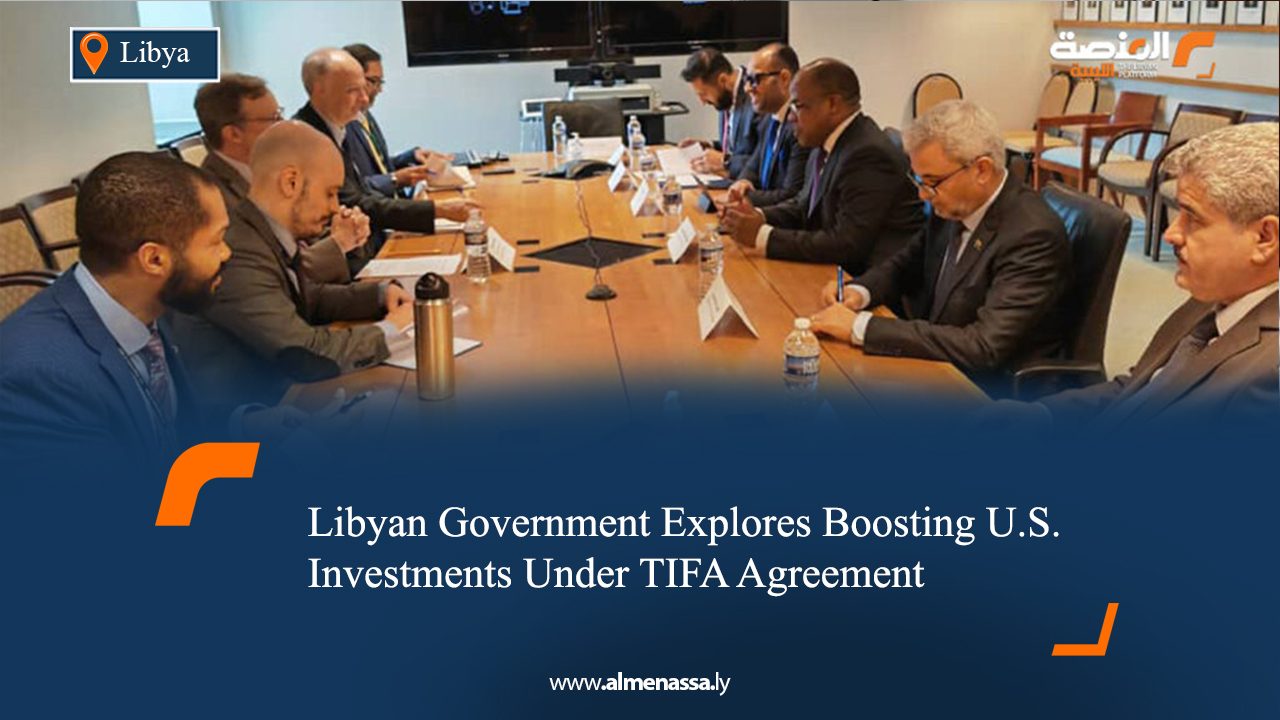A delegation from Libya’s Government of National Unity continues its series of meetings in Washington, D.C., as part of a program aimed at strengthening strategic economic ties between Libya and the United States and activating the Trade and Investment Framework Agreement (TIFA).
The high-level delegation includes the Acting Minister of Oil and Gas, the Head of the Executive Team for Prime Minister’s Initiatives and Strategic Projects, the Deputy Minister of Economy and Trade, the Chairman of the Libyan Investment Authority, as well as senior officials from the Ministries of Foreign Affairs and Oil.
Meetings with the U.S. Department of Commerce and the Bureau of Economic and Business Affairs
In the first meeting with representatives from the U.S. Department of Commerce, discussions focused on encouraging American companies to establish direct offices in Libya rather than relying solely on regional branches. This move aims to ensure a stronger presence in the Libyan market and support the return and expansion of U.S. businesses across various sectors.
The second meeting, held with the Bureau of Economic and Business Affairs at the U.S. Department of State, addressed the performance of American companies in Libya and explored ways to streamline trade procedures. Topics included harmonizing customs and tax regulations, certificates of origin, and inspection licenses for U.S. exports to Libya.
Strategic Sector Partnerships
Talks also covered enhancing the trade balance and building economic partnerships in key sectors such as:
- Oil and gas
- Renewable energy
- Healthcare
- Mining
- Asset management
- Electricity
- Telecommunications
- Transportation
- Infrastructure
These efforts aim to expand the practical scope of the TIFA agreement and turn it into a dynamic platform for economic cooperation.
Commitment to Long-Term Strategic Collaboration
Both sides emphasized the importance of increasing the presence of U.S. companies in the Libyan market and expanding Libyan investment opportunities in the United States. This reflects the strength of bilateral economic relations and lays the groundwork for long-term strategic collaboration.


